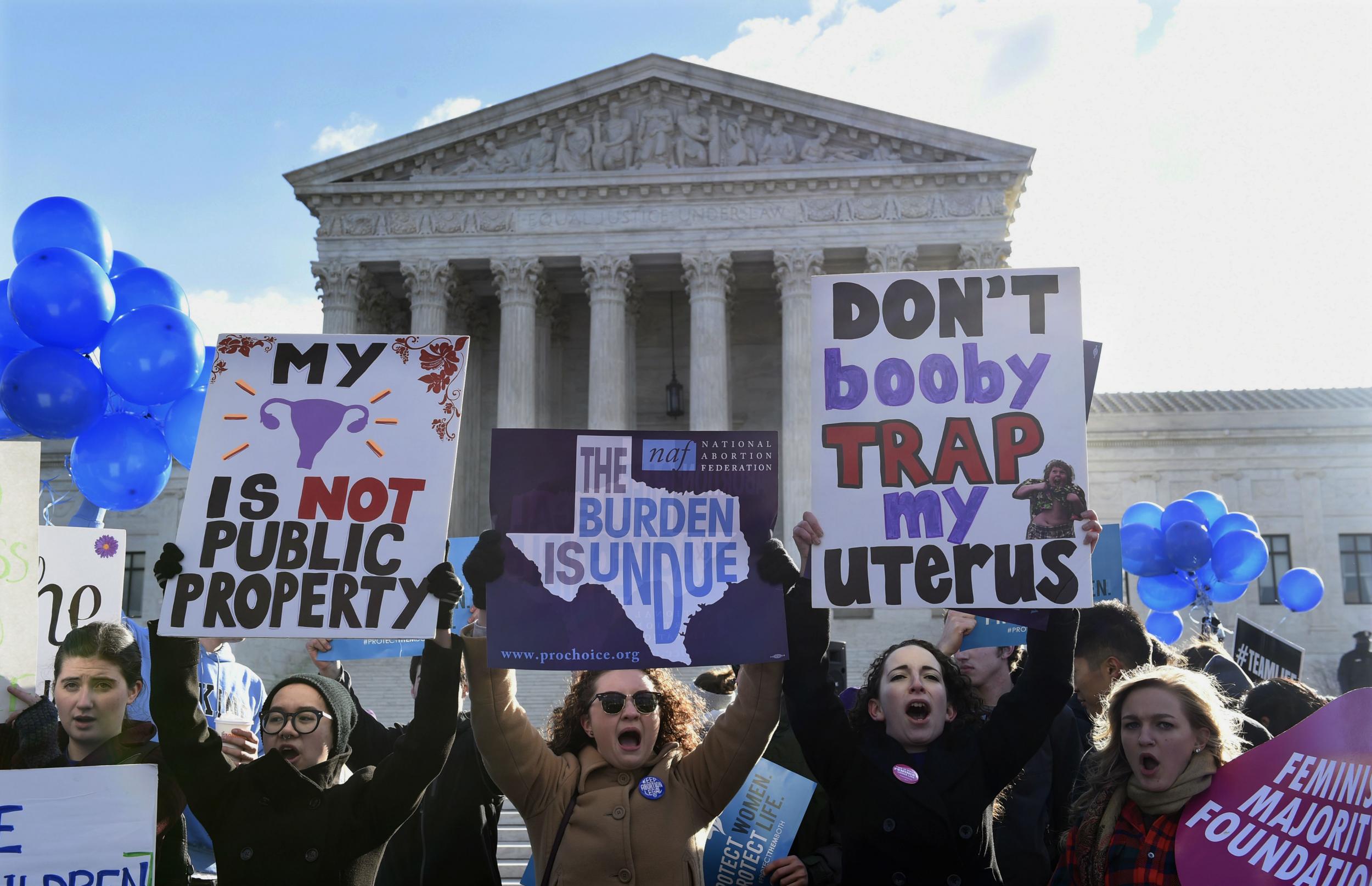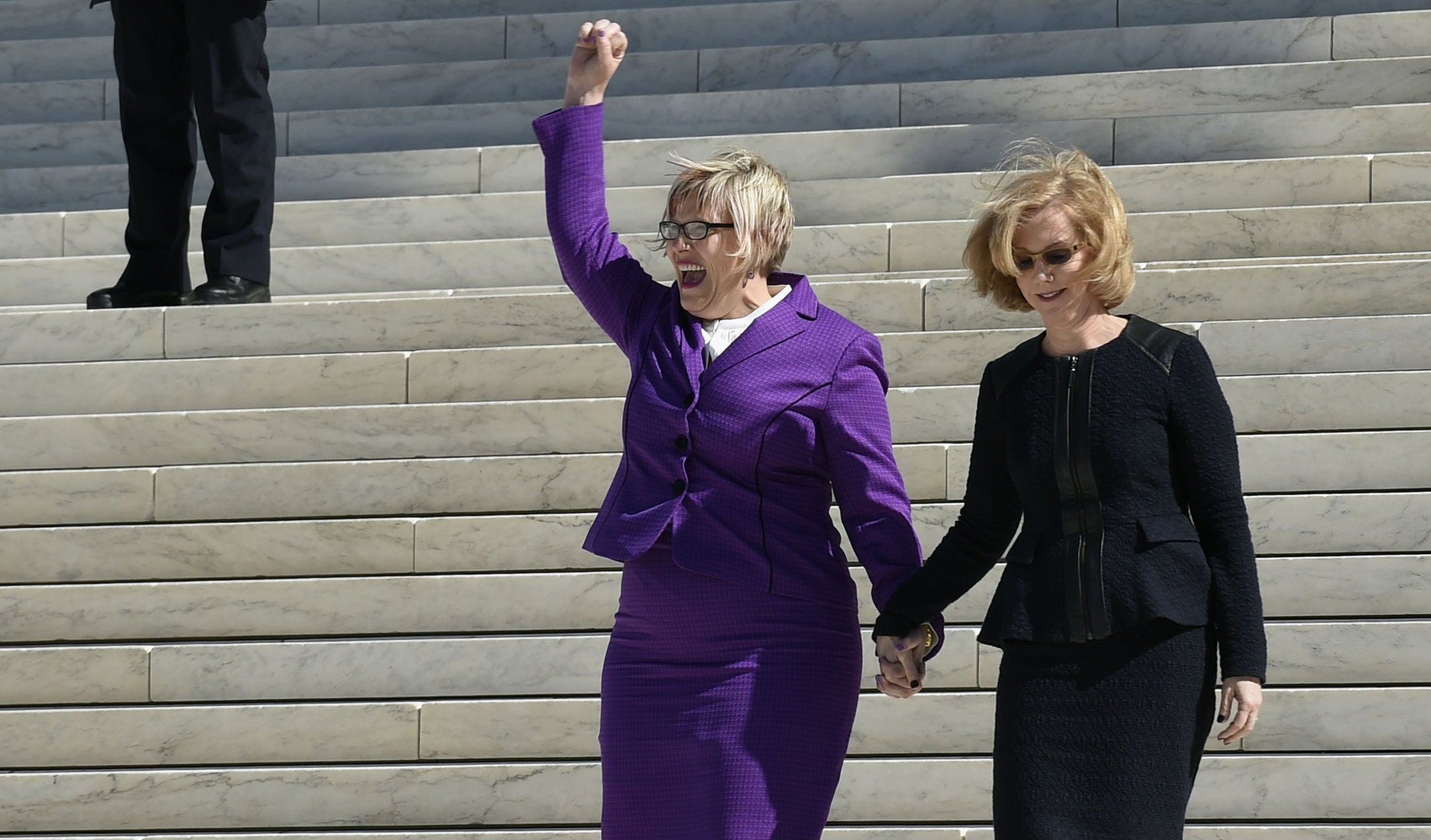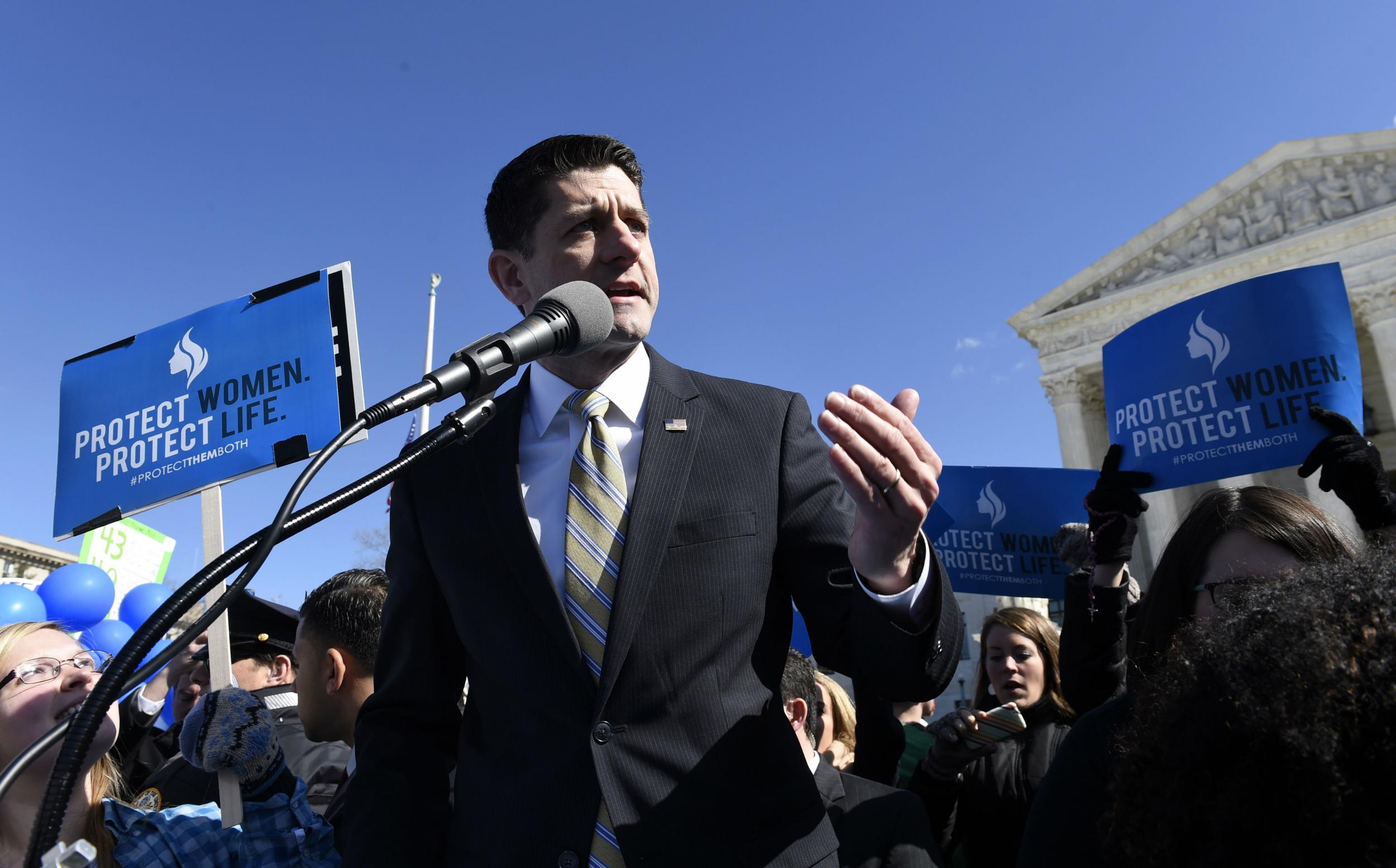US Supreme Court divided over abortion rights battle
Judges debate whether upholding restrictions imposed on clinics in 2013 would force them to close

Your support helps us to tell the story
From reproductive rights to climate change to Big Tech, The Independent is on the ground when the story is developing. Whether it's investigating the financials of Elon Musk's pro-Trump PAC or producing our latest documentary, 'The A Word', which shines a light on the American women fighting for reproductive rights, we know how important it is to parse out the facts from the messaging.
At such a critical moment in US history, we need reporters on the ground. Your donation allows us to keep sending journalists to speak to both sides of the story.
The Independent is trusted by Americans across the entire political spectrum. And unlike many other quality news outlets, we choose not to lock Americans out of our reporting and analysis with paywalls. We believe quality journalism should be available to everyone, paid for by those who can afford it.
Your support makes all the difference.The US Supreme Court appears closely divided on its ruling as to whether upholding more stringent restrictions should be placed on abortion clinics in Texas, one of the most important legal cases on abortion since 1973's Roe V Wade.
Justice Anthony Kennedy, who is likely to have the final say in the case, has given little indication how he would rule, as reported by Reuters.
After the death of Justice Antonin Scalia, who was certain to vote against the clinics, leaving a seat open at the Supreme Court, the court could now end up as a split vote of 4-4.
A split vote would allow a lower court ruling that affirmed the Texas law, but no nationwide precedent would be set on whether other states would follow and enact similar measures.
However, if Justice Kennedy were to side with the four liberal judges, the law could be struck down.
Texas clinicians are contending that a law passed in 2013 by Republicans fails to protect women’s health by placing strong demands on clinics and doctors. The rules require that abortion clinics be equipped to the same standards as walk-in surgical centers and that clinic doctors have “admitting privileges”, meaning they can freely walk in to a hospital within 30 miles (48 km) of the clinic if needed.
The restrictions would close 75 per cent of Texas clinics and disproportionately affect poor women, clinic staff have argued.
Amy Hagstrom Miller, founder and CEO of a group of clinics in Texas, Whole Woman’s Health - the lead plaintiff in the case - told The Huffington Post that the new rules mean that women have to walk into an operating theatre just to be given two pills and a glass of water.
“One objective of the opposition is to make abortion seem more scary, complex and complicated than it actually is,” she said.

“The regulatory attack on the provider makes it difficult to stay open, but it also paints us as careless rather than caring, as unsafe and in need of constant oversight instead of as the compassionate medical professionals that we are,” she added.
The Supreme Court is hearing oral arguments today and a ruling is due by the end of June. Over 110 women in the professions, including actress Amy Brenneman, have submitted written personal testimonies of how access to an abortion meant they could secure their futures and their careers, allowing some of them to cherish motherhood at the right time for them.
Hundreds of protestors gathered outside the courthouse on 2 March, just months before the new President is selected for the White House on 8 November.
“If you support life, let me hear you scream,” South Carolina anti-abortion Republican Senator Tim Scott said to screams and applause from the crowd.

The landmark 1973 case of Roe v. Wade found that a woman had a constitutional right to privacy, protecting her decision to end a pregnancy, and only a “compelling state interest” could justify regulating abortion.
That ruling was affirmed in 1992 and that any regulation must not impose an “undue burden” on women seeking an abortion.
In 2007 the Supreme Court ruled 5-4 to maintain a nationwide law that prohibited late-term abortions.
Jess McIntosh, Vice President of Communications for EMILY's List and former spokesperson for Senator Al Franken, said at a feminist event at New York’s historic Cooper Hall on Tuesday evening that the anti-abortion protestors represented a “backlash to progress”.
“But I remain optimistic,” she said.
Subscribe to Independent Premium to bookmark this article
Want to bookmark your favourite articles and stories to read or reference later? Start your Independent Premium subscription today.
Join our commenting forum
Join thought-provoking conversations, follow other Independent readers and see their replies
Comments